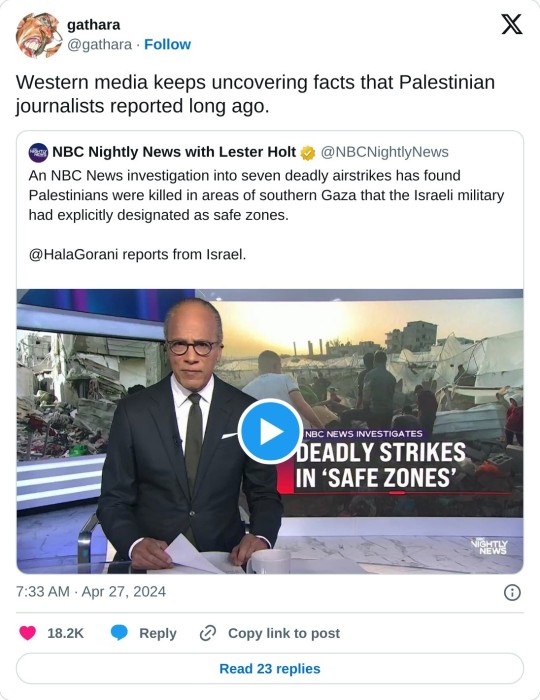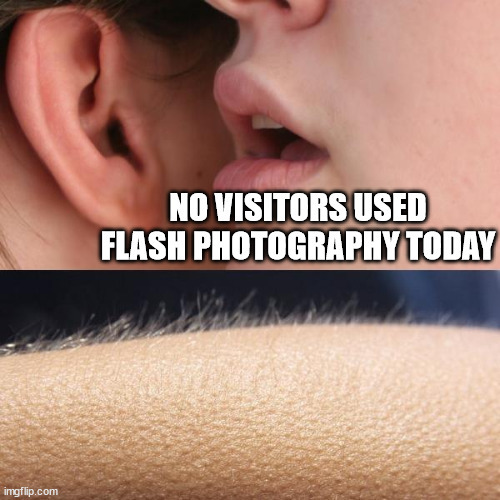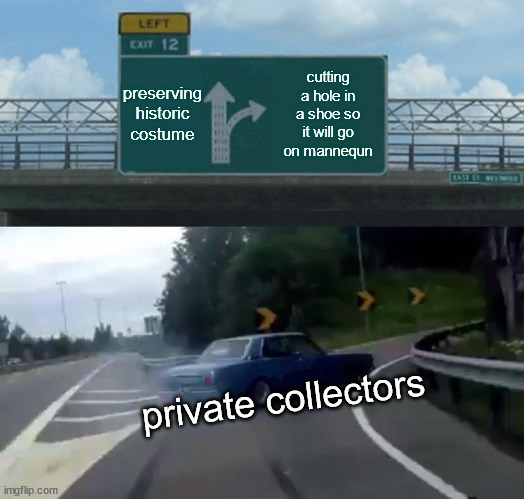Text
it's inappropriate to suggest to someone that they might be cis because that's deciding their gender for them and you should stop forcing your own ideas on them
80 notes
·
View notes
Text
The two met up in February 2023 and on the second day, things became sexual. Weaver said he gave the woman oral sex. The next morning, after Weaver was back at his own home, a voice inside him told him that he should remind his friend about his HIV status.
“She flipped out. She said, ‘If I have it, I’m going to kill you.’ I just kept telling her that you can’t get [HIV] from saliva,” Weaver said.
A few hours later, the friend contacted the Austintown police.
Police questioned Weaver at his home that same day. But it wasn’t until months later that he was charged with felonious assault, arrested and booked into the county jail on June 1, 2023.
“You disrespect everything that’s proper and moral and ethical,” Mahoning County Common Pleas Judge R. Scott Krichbaum told him.
Last month, Equality Ohio and the Ohio Health Modernization Movement released results of a three-year effort to count prosecutions in Ohio’s 88 counties. Compiling information from court dockets and public records requests to court clerks and prosecutors, the groups tallied 214 cases prosecuted over a six-year period.
About a third of the cases were like Weaver’s: felonious assault, which carries the most severe penalty of any HIV-related charge. More than half of the cases were for “harassment” with a bodily substance, most often involving law enforcement, corrections officers or healthcare workers. Ohio law doesn’t distinguish between bodily fluids that can transmit HIV, such as blood, and those that do not, such as saliva, urine or feces.
Nearly four months into his [up to eight year] sentence, Weaver, now 23, is trying to keep his spirits up.
It’s not lost on [his mom] that the same judge who lectured her son about morality, weeks later hit a cyclist with his car, left them by the side of the road, and ended up with only a $400 fine.
black trans guy jailed with a felony for giving oral sex to his friend while being HIV positive. the whole article is shocking but i tried to keep it brief
5K notes
·
View notes
Text
The Israeli occupation dropped leaflets in Al-Bureij today (Times of Gaza) that read:
"You are located in an critical battle zone. For your safety leave immediately and head to known shelters in Deir-Al-Balah" (25-12-23)
Here’s what the situation in Deir-Al-Balah has been this past week up until this morning:
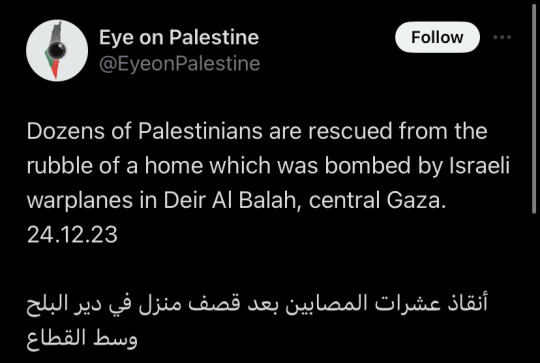




Dr Ebraheem works in the Al-Aqsa Martyr’s Hospital in Deir-Al-Balah. This is what he’s got to say about the situation in Deir-Al-Balah


In a post written on his blog, Dr Ebraheem describes the situation at the hospital further:
“I saw bodies coming spewing dust as if they were a sponge dipped in ash. I saw children bleeding and sinking into a coma because heavy stones came on their weak heads. I saw people whose colors, shapes, and names changed, where at a certain moment it was not possible to know who was injured, as they said: ‘Clean his face from the dust, perhaps we might recognize him.’
They do, and discover that he is so-and-so, the kind and simple man, as he was sitting in his house because he had no other place to escape.
I saw people confused by the number of victims - because of their large number—‘How many dead did we count today? Did we miscount? I told you, in the last hour, two girls came as martyrs, two children with bleeding heads, ten young men who came without vital signs in one fell swoop at the very least, lumps of flesh (parts) in a small bag, and open heads from which the brain can be seen.’
I sat with someone who was talking to himself and asking: ‘All these injured and martyrs were like us an hour ago, they were with us.’
A little while ago they were alive (like us), so when will our turn come?”

meanwhile, we have people making excuses saying palestinians are given “ample time to evacuate”. evacuate where?! where should they go? everywhere they go there is murder, rubble, bombings and destruction. nowhere is safe. it’s all a trap!
where. should. they. go?
this is their homeland. there are not going anywhere else. ceasefire and end occupation NOW!!

CONTACT YOUR REPS AND CALL FOR CEASEFIRE AND AN END TO OCCUPATION
PROTEST!

let the world know you stand with palestine. let the world know it MUST at any cost, dismantle the state of israel and free the palestinians.
demand the rights of the palestinians. demand they be given back their land. THIS is what land back means. the palestinians must be given their land back in its entirety.
from the river to the sea, palestine must be freed.
there are no more negotiations to be made. they must be free. this has gone too far for too long. israeli aggression is intolerable and the world will no longer stand for it nor make excuses for it. this is not a war. these people are not collateral. this is a textbook case of genocide and it, and the israeli occupation forced, must be stopped.
4K notes
·
View notes
Text
When one thinks about “ancient” Native American civilizations and ruins… the thing is that… most of them, they weren’t ancient. The Inca were not fully conquered by the Spanish until 1572… for reference, the Mona Lisa was painted in 1502 and Martin Luther made the 95 Theses in 1517.. the “ancient” Aztec Empire was younger than the university of Oxford founded in the 11th century, Montezuma lived at the same time than Leonardo Da Vinci… There are castles that are younger than Machu Picchu, those cities were inhabited by millions just a few centuries ago, and some (Cuzco, México), many actually, are still inhabited today. People speak about the Ancient Maya as if it was some mysterious civilization that was lost, and while it was past its prime at the time of European conquest, the Maya still had city-states and were living in the same areas they live today.
There are still millions of people, right now, who speak Quechua, Nahuatl, and Maya in all their dialects, and I’m just talking about the three most well-known civilizations here… there are millions of Native Americans who still speak their languages and practice their culture and beliefs alive, both thriving and struggling today.
Talking about the “Ancient Inca” or “Ancient Aztecs” makes as much sense as talking about the “Ancient Dutch” or the “Ancient Swedes”, and it’s another way of erasing them, saying that they just aren’t around anymore just like say the Sumerians, or that they just weren’t relevant to world history. They were contemporaries to modernity and they’re still alive today.
You can talk about the Ancient Olmecs or Ancient Chavín though. Because the Inca and the Aztecs are relatively “modern” but their cultures were just the latest from a cycle of civilizations stretching millenia before Christ.
47K notes
·
View notes
Text
not to add to the doom posting, but:
the Supreme Court will soon review the constitutionality of the Indian Child Welfare Act.
the ICWA protects Native children from being adopted out of their communities, and it’s under fire bc a white couple is suing on the basis that it’s “racial discrimination” that they can’t adopt a child away from her family, (Brackeen v. Haaland). it’s probably not going to end well.
I encourage you to do your own research, but the point of this post: the Lakota People’s Law Project is assembling a brief, and coordinating with other legal teams on this, including working with the original author of the ICWA.
the Lakota People’s Law Project have a petition you can sign here, and let’s be real, what they really need is donations, (especially since they’re going up against a campaign funded by oil conglomerates).
i’ll put source links in the replies so i can keep them up-to-date.
23K notes
·
View notes
Text
I'm all for academic integrity and accurate citing until I change the access date in the footnote to make my professors think I didn't procrastinate
25K notes
·
View notes
Text
thing about academia is that if your syntax is sophisticated enough you don't actually have to know anything and you can just say whatever you want
128 notes
·
View notes
Text
Books to help you deal with life when you have ADHD (totally not free 👀)
Delivered from distraction
The queen of distraction
The ADHD Advantage
Smart but stuck
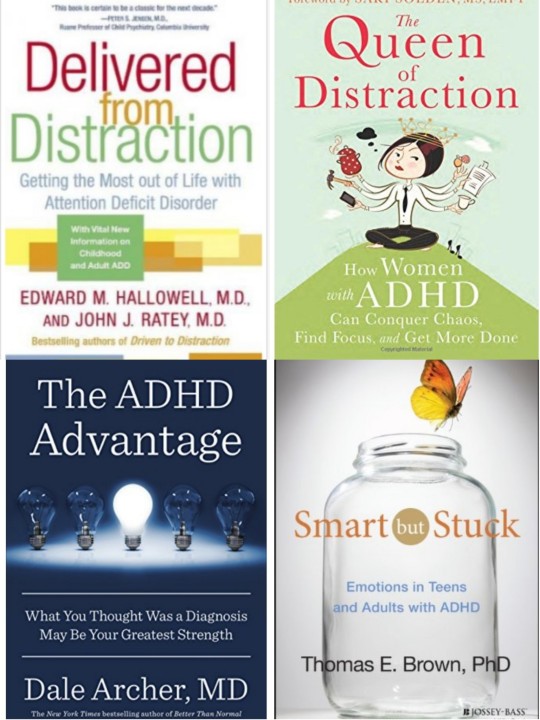
Driven to distraction
Driven to distraction at work
Smart but scattered
Finish what you start

Mindset
The Mindfulness Prescription for Adult ADHD
Organizing Solutions for people with ADHD
Self-regulation & Mindfulness
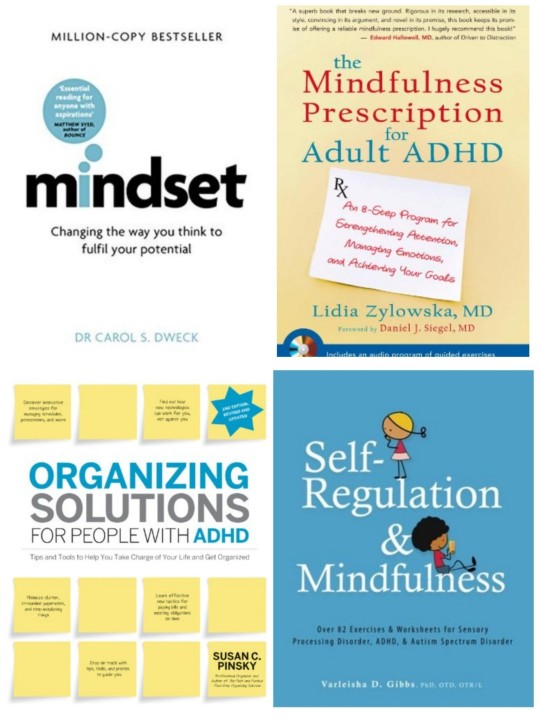
ADHD: A guide to understanding
The disorganized mind
Overcoming distractions
Coaching college students with executive problems
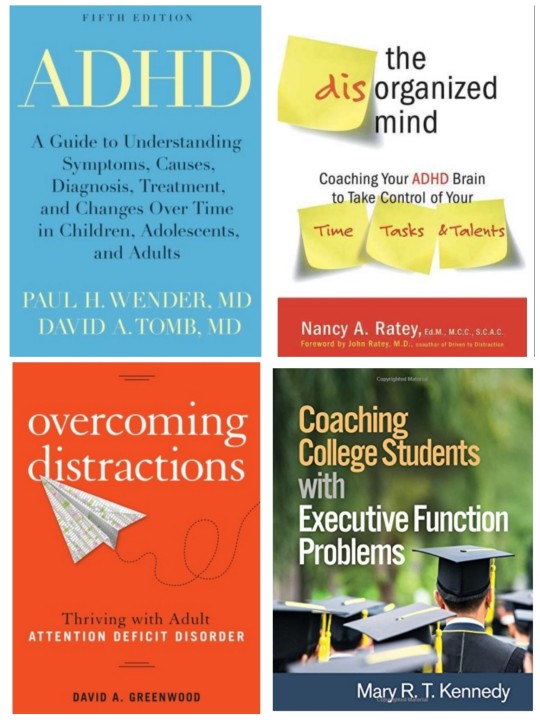
Learning outside the Lines
Faster than normal
ADHD 2.0: New Science
Thriving with Adult ADHD

6K notes
·
View notes
Text
40 Study Tips & Tricks
I thought to write down the “script” to one of my most viewed videos, with 40 study tips & tricks. It’s easier to read them and pass on the word!
Organization Tips:
1. Incorporate homework and classes in you daily planner – that will give you an overall glimpse of how your week will be about and how much time you need to spend in your studying sessions!
2. Color coordinate classes – be it notes, your planner, your textbooks or binders, pick a unique color for each class and work around the hues of that color to get more organized!
3. Make your own syllabus – if your professor doesn’t provide a syllabus for your class, try to make one before the school year working around your given textbooks or other given material.
4. Make study guides – make a study guide from your syllabus and draw before each topic two boxes: one for a midtest and one for the final test. When you have one of these tests, check the boxes when you’ve finished studying the chapter so you won’t miss anything!
5. Reference your material throughout – most of the times, we students work with in-class notes, textbooks and a syllabus. Since we get small bits of information here and there it’s important to reference every page throughout all your material so you can quickly access your information without having to flip endlessly through pages!
6. Keep a dashboard nearby – Whenever you use a notebook or a binder, make a dashboard on the first page with post it notes so you can quickly scribble any questions, homework or page numbers. When you get home, you just need to open your dashboard and attend those notes.
7. Print any tests, exercises and exams you can find – keep those in the end of your binder. These are perfect to practice before exams and tests because they really reflect what you will be tested about. Set an alarm clock for the deadline and start working on those!
8. Condense – organization disappears when you have too many of everything. Working with more than one planner in your life will make everything chaotic. If you think you need a second planner because you don’t have enough space to write in the first one, it’s because you don’t have available time as well. Don’t fool yourself and set achievable goals!
9. Customize your textbooks – most of the times, textbooks are formal books where information is hard to come by. Make your own tabs and write every chapter on them so they stick out – flag any charts, tables or graphics. Everything needs to be incredibly accessible!
10 Print a special planning sheet before finals: Organizing your studying by chapters and/or topics before finals is tremendously important since it lets you organize the amount of time you dedicate to each subject,
Study Sessions and Time Management
11. Save at least one afternoon or one morning a week for intensive studying. These is your “life-saver” – when you get so full of homework and projects that you can’t incorporate them into your daily academic routine, one free afternoon to organize your school life will really come in handy! Make an appointment with yourself!
12. Prepare in advance – although most professors may not ask you to prepare a class in advance, if you have the means to, go ahead. Grab a sheet and make a summary of the chapter your class will be about. Write the major topics and key information and take that guide to class. When your professor repeats previously studied information, you will be able to understand everything much better!
13. Never leave something behind – Even if you have a more light class, where professors don’t request homework or any side projects, don’t let that fool you! Be disciplined and be your own professors! Make your own projects and learn everything you can so you can nail those finals when they arrive.
14. Write your questions – most of the time, in a heavy study session, we come up with tons of questions and sometimes we just leave them behind. Write them down in your dashboard or a small notebook and ask your professors (personally or via e-mail). You can also ask your schoolmates in a facebook group created for that purpose!
15. Set an alarm clock and reward yourself – even if you study during an entire afternoon your studying will be pointless if you don’t take regular breaks. Set an alarm clock for one hour/one hour and a half and then take a 15 minute break. Never study for more than 2 hours straight! Even if you don’t notice, you’ll get less and less focused.
16. . Make a list – before each study session I like to grab my notepad and write down everything that I need to do before my session ends: the chapters I need to read, the pages I need to go through and the homework I need to complete. Sometimes I even write theses lists when I’m in college so I’ll have more determination to complete those tasks once I get home.
17 Work on the least interesting thing first. There are always classes or projects that we like the least – and those are the ones that we need to tackle first. You will start your studying session concentrated, which will let you go through the worst tasks faster.
18 Print, print, print. try to print everything you can and never study from your computer. Having your PDF files printed at hand will let you concentrate better, highlight and write some notes in the margins. You can take these everywhere with you and even turn them into small guides for future classes!
19. If you finish ahead, don’t quit. Perhaps the time you’ve saved for your study session has come to an end way before you have planned. That doesn’t mean you should stop right now – Take that time to review what you’ve learned so far or prepare other classes ahead of time!
20. Study in an organized space – make your own studying corner – bring everything you will need, from textbooks, binders and notebooks, to a cup of coffee and your computer. Keep them neatily organized on your desk so everything is at hand and on sight. Put on some soft background music (links down below) and adjust the lightning.
In class notes
21. If your professor provides PowerPoint slides before each class, print them (six or four per page) and bring them to class. Write in the margins and more throughout information in the back so it’s all condensed and tight. This is where you’ll take your notes. If you prefer to write on lined paper, think about copying some ruled paper to the back of your printed slides.
22. If your professor asks you to prepare your class in advance, try to make a small guide for each class. Open the comments column in MSWord and print the pages with that column. When you go to class, incorporate the in-class notes in that column, next to the relevant information so everything is nice and condensed.
23 If you are in a information-heavy class, try to adopt the Cornell method, which is the best, in my opinion, when you need to be a fast writer. There’s a video right here on how to use this method.
24. If you are in a bits-and-pieces class, which is that kind of class where the professor just gives a few key points and then gives practical examples or makes you work in group, try to adopt the box method – you can draw these boxes yourself or make them with post it notes – these are way more visual and perfect to memorize information.
25. Write in-class flashcards – if you don’t have flashcards around, make tiny flashcards on the top of your notes, where you cover the definitions you’ve written with the name of the definition. Each time you open your notes, try to remember the hidden definition. Automatic studying, every time!
26. Participate in class – nothing better than to be actively involved in your class discussion. For most of us, shy creatures, participating can be dreadful – but once you get out of your box, you’ll see how participating really makes you understand the subject!
27. If you have any questions during class, raise your hand and ask them. If your professor doesn’t like being interrupted, write them down and approach them in the end of the class. Sometimes, the little things we don’t understand are exactly the ones that come up on the final exam!
28. Ask for examples. Examples are probably the thing that makes your brain connect the information faster. If your professor isn’t keen on providing examples, suggest your own and see if your answer comes up right. Sometimes, examples are the thing that really makes us understand our material and our definitions, since they transform formal information into relatable events.
29. Sit at the front. It sounds too straightforward but sitting at the front really makes wonders. You won’t get distracted by what you classmates are doing, you will focus on the professor, who is right in front of you and you will resist the temptation of going to Facebook and Instagram during a boring presentation.
30. Write a brief summary at the end of the class. During those five minutes where everyone is dismissed and leaving the room, write a brief summary of that classes’ key points in the back of a page – this is fundamental in the Cornell method but can be used in any other method as well.
Finals Guide
31 Skim through your material two times: at first, you should start by studying your material starting from the end. The last lessons will be fresh in your memory and it’s very important to reinforce your knowledge on these while you can. In the second reading, you should start from the beginning, as usual. It’s important to make these two readings so you can go through the information in a much more flexible way.
32. Make a mindmap of each chapter. A mindmap is a chart that relates key words and important information, making it easy to understand the relationship and hierarchy between such key words. Use colors and images to memorize your material better. Oh, and don’t forget to check out my video on how to make mindmaps!
33. Read each of the titles and try to say out loud its contents, explaining each concept and the relationship between them. Imagine you are the teacher and are lecturing that subject to a crowd. If you skip any of the subjects, do it all over again. The more you repeat, the better you will memorize.
34. It’s time for some flash cards! Write the topic or the title on one side and the meaning or the explanation on the other. Try to cover as many topics or titles as you can and go through your cards while memorizing as best as you can each of the concepts. Try to do it backwards if you have time to do so!
35. On the day before the exam, skim through your mindmaps and flash cards again and always try to study while talking. Saying your content out loud will force your brain to relate information in a much more cohesive way and you’ll memorize everything much better.
36. Read the entire exam from top to bottom. Underline or circle any important words that you think will be crucial in you answer. After that, calculate how much time you should spend answering each question: this simple calculation will take only twenty seconds and will help you organize your time. Try to save five minutes at the end for revisions.
37. If you are solving a written exam and not multiple choice, try as much as possible to organize each answer in a structured way, saving two lines just to present your line of thought and writing each different argument in a different paragraph. Draft a conclusion at the end to underline the centre of your answer. Sometimes softly underlining some keywords is important to make your professor notice that you’ve correctly given importance to certain concepts.
38. Use these symbols for each question: one dot if you aren’t sure of the answer, two dots if you are sure of your answer and a circle if you are completely unaware of your answer. Start by answering any question with two dots; after those are all answered, go on through the two dots question. Leave the circle questions to the end – and ALWAYS answer them! Even if you don’t know what they’re about, who knows if you will be able to come up with something right?
39. Review your test one final time – many times, we make a lot of mistakes under stress and now is when you should spot them and amend them. This can be the difference between a B and an A!
40. Don’t take this too seriously – school is an important aspect of our lives but it isn’t everything. Failure comes many times and these failures can even drive you away from something that was simply not meant to be. Don’t stress out because everyone goes through the same!
25K notes
·
View notes
Text
research is like *reads (1) book; said book references (20) books, (8) of which are relevant to your argument; now has to browse (8) more books; all of this work might yield (3) sentences in your final project”
6K notes
·
View notes
Photo


The eye of a marble statue from Herculaneum, with surviving paint. Roman before 79 AD.
23K notes
·
View notes
Text
Just to be clear:
My advocacy for the preservation of minority languages has nothing to do with the fact that they are interesting/fascinating/any other adjective of that nature
Minority languages deserve protection because they are important, and they are valuable
The worth of a minority language is not determined by the entertainment it can provide to outsiders
While I believe that all languages are beautiful and unique, it shouldn't matter that a language is ugly, or boring or "useless"
Yes, Celtic folk music is beautiful, but that is not the reason for preserving Celtic languages
6K notes
·
View notes
Text
on one hand i understand the frustration with the fact that duolingo is only Now putting up yiddish as a language when they have fictional languages like klingon on there but on the other hand part of the reason why is that they literally for years could not pick a specific dialect of yiddish and ended up actively employing yiddish scholars to work in bits from academic+historical yiddish as well as contemporary vernacular yiddish and basically had to build the entire thing ground-up rather than being handed some showrunner’s language bible
anyway it’s actually really interesting to read about how they built the yiddish program for duolingo yall should check it out
32K notes
·
View notes
